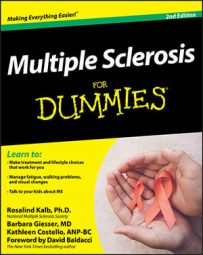In regard to multiple sclerosis (MS), the term long-term care refers to a wide range of services designed to help you or a family member carry out daily life activities. These services run the gamut from housekeeping help, personal assistance in your home, adult day health programs, and respite care, to community assisted-living options and nursing home care.
The number of options available may seem a bit mind-blowing, so keep in mind that you can use the expertise of professionals called care managers (also referred to as care coordinators or case managers). These professionals can help you sort it all out, generally on a fee-for-service basis. Care managers specialize in information and referral, patient advocacy, and coordination of health and social services.
In other words, they can be your eyes and ears in the search for community resources as you sort out options and make decisions. For information about local care manager options, contact the National MS Society at (800) FIGHT-MS.
Most of the services we talk about here have traditionally been geared toward the elderly. The good news is that a lot of progress has been made toward identifying the unique needs of younger folks with disabilities. Any of these services may be temporarily appropriate if your health has been set back by a relapse or an infection. Choosing this help doesn’t necessarily commit you to a life-long contract.
Work with your family members when making long-term plans and decisions so that no one feels left out of the process. Doing so helps to ensure that everyone’s questions, feelings, and concerns can be heard and dealt with.
If you find beginning the conversation is difficult, get some help: Your neurologist, nurse, or the National MS Society can help you think through the options and identify services and facilities in your area.
A mental health professional can help family members talk with each other more comfortably, ensuring that each person’s feelings and ideas get to be heard. This shouldn’t be a conversation about who’s doing what to whom — it should be about what options work best for all of you.

